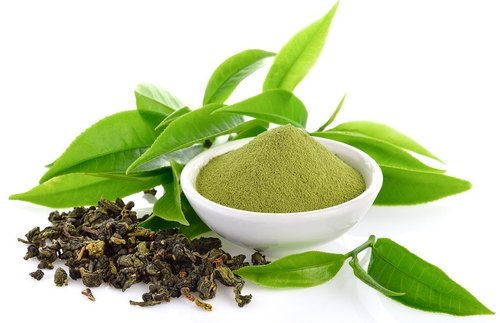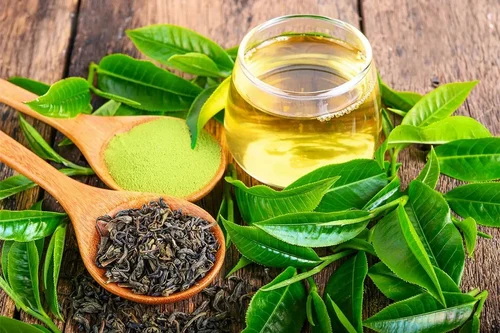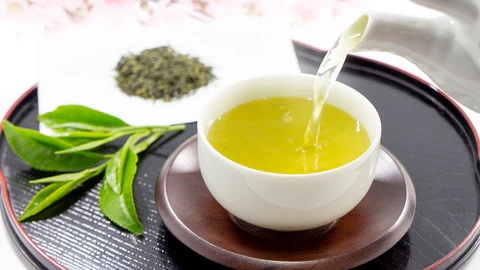Content Menu
● Understanding OEM Green Tea Extracts
>> Forms of Green Tea Extract
● Why Choosing the Right OEM Green Tea Extract Manufacturer Is Crucial
● Key Steps to Find Reliable OEM Green Tea Extract Manufacturers
>> 1. Define Your Product Specifications and Needs
>> 2. Conduct Comprehensive Manufacturer Research
>> 3. Verify Certifications and Compliance
>> 4. Assess Quality Control and Testing Protocols
>> 5. Evaluate Supply Chain and Production Capacity
>> 6. Explore Customization and Research & Development Support
● Extraction Methods Used by OEM Green Tea Extract Manufacturers
● Additional Considerations When Choosing an OEM Manufacturer
>> Sustainable and Ethical Sourcing
>> Regulatory Compliance for Target Markets
>> Packaging and Labeling Services
>> Communication and Customer Service
● Tips for Verifying OEM Green Tea Extract Manufacturers
● Conclusion
● Frequently Asked Questions (FAQ)
>> 1. What certifications are essential for OEM green tea extract manufacturers?
>> 2. How can I ensure the green tea extract's quality and safety?
>> 3. What is the typical minimum order quantity (MOQ) for OEM green tea extracts?
>> 4. Can OEM manufacturers customize green tea extracts?
>> 5. Does the origin of green tea leaves affect extract quality?
Green tea extract has become a cornerstone ingredient in various industries, including health supplements, cosmetics, and functional foods, thanks to its well-documented antioxidant and health-promoting properties. For businesses aiming to develop products with green tea extract, partnering with a reliable OEM (Original Equipment Manufacturer) green tea extract supplier is essential. This article provides an in-depth guide on how to identify trustworthy OEM green tea extract manufacturers, ensuring product quality, regulatory compliance, and supply chain stability.

Understanding OEM Green Tea Extracts
OEM green tea extracts are products manufactured by a third party that brands can label and market as their own. Extracted from the leaves of *Camellia sinensis*, these extracts are rich in bioactive compounds such as polyphenols, catechins, and especially epigallocatechin gallate (EGCG). These compounds contribute to antioxidant, anti-inflammatory, and metabolism-enhancing effects, making green tea extract highly desirable in health-related products.
Forms of Green Tea Extract
Green tea extracts come in various forms tailored to different applications:
- Powdered Extracts: These are the most common, often standardized to specific polyphenol concentrations, suitable for capsules, tablets, and food fortification.
- Liquid Extracts: Concentrated forms used in beverages, cosmetics, and topical formulations.
- Customized Extracts: Including decaffeinated, water-soluble, or oil-soluble variants designed for specialized product needs.
Choosing the right form depends on your product's intended use and manufacturing process.
Why Choosing the Right OEM Green Tea Extract Manufacturer Is Crucial
The choice of manufacturer directly affects your product's quality, safety, and market success. Reliable OEM manufacturers provide:
- Consistent extract potency and purity.
- Compliance with international quality and safety standards.
- Transparent sourcing and manufacturing practices.
- Flexibility in customization and formulation support.
- Dependable supply chain and timely deliveries.
Failing to select a reputable manufacturer can lead to inconsistent product quality, regulatory issues, and damage to brand reputation.
Key Steps to Find Reliable OEM Green Tea Extract Manufacturers
1. Define Your Product Specifications and Needs
Start by outlining your product requirements clearly:
- Desired extract form (powder, liquid, specialized).
- Target polyphenol and EGCG content.
- Organic, non-GMO, or allergen-free certifications.
- Required order volumes and delivery schedules.
- Packaging and labeling preferences.
Having detailed specifications helps you communicate effectively with potential manufacturers and filter suitable candidates.
2. Conduct Comprehensive Manufacturer Research
Explore multiple avenues to identify potential OEM green tea extract manufacturers:
- B2B marketplaces and supplier directories.
- Industry trade fairs and exhibitions.
- Referrals from industry peers and associations.
- Manufacturer websites and product catalogs.
Look for manufacturers with proven experience in green tea extract production and OEM partnerships.
3. Verify Certifications and Compliance
Quality and safety certifications are critical indicators of a manufacturer's reliability:
- Good Manufacturing Practices (GMP): Ensures controlled, hygienic production environments.
- ISO Certifications: Reflect adherence to international quality management standards.
- Organic and Non-GMO Certifications: Important for natural and health-focused products.
- Third-Party Laboratory Testing: Confirms extract purity, potency, and absence of contaminants.
Request copies of these certifications and audit reports when possible.
4. Assess Quality Control and Testing Protocols
Reliable manufacturers implement stringent quality control measures, including:
- Quantitative analysis of polyphenols and EGCG using high-performance liquid chromatography (HPLC).
- Screening for heavy metals, pesticides, and microbial contaminants.
- Stability testing to ensure product efficacy throughout shelf life.
- Provision of Certificates of Analysis (COA) and Material Safety Data Sheets (MSDS).
Ensure the manufacturer provides transparent and detailed documentation.

5. Evaluate Supply Chain and Production Capacity
Confirm that the manufacturer can meet your volume and delivery requirements reliably:
- Understand their minimum order quantities (MOQs) and lead times.
- Inquire about the sourcing of raw green tea leaves and their traceability.
- Check their capacity for scaling production as your demand grows.
- Review logistics capabilities and packaging options.
A manufacturer with a robust supply chain reduces risks of delays and shortages.
6. Explore Customization and Research & Development Support
Many OEM manufacturers offer customization services to tailor extracts to your product needs:
- Adjusting polyphenol or caffeine levels.
- Providing decaffeinated or specialty extracts.
- Offering technical support for formulation and regulatory compliance.
Partnering with such manufacturers can enhance your product's uniqueness and market appeal.
Extraction Methods Used by OEM Green Tea Extract Manufacturers
The quality of green tea extract is influenced by the extraction method employed:
- Solvent Extraction: Uses water, ethanol, or mixed solvents to extract active compounds. It is cost-effective but may leave solvent residues if not properly managed.
- Supercritical CO2 Extraction: A clean, solvent-free method that yields high-purity extracts with minimal thermal degradation.
- Spray Drying and Freeze Drying: Techniques to convert liquid extracts into powders while preserving bioactive compounds.
Manufacturers using advanced extraction technologies typically produce higher-quality extracts with better stability and efficacy.
Additional Considerations When Choosing an OEM Manufacturer
Sustainable and Ethical Sourcing
Sustainability is increasingly important to consumers and brands alike. Check if the manufacturer sources green tea leaves from environmentally responsible farms that practice sustainable agriculture and fair labor standards. Certifications such as Fair Trade or Rainforest Alliance can be indicators of ethical sourcing.
Regulatory Compliance for Target Markets
Ensure the manufacturer understands and complies with regulations in your target markets, such as FDA regulations in the United States, EFSA standards in Europe, or other regional requirements. This includes proper labeling, health claims, and ingredient safety.
Packaging and Labeling Services
Some OEM manufacturers provide turnkey solutions, including packaging design, labeling, and private labeling services. This can simplify your supply chain and ensure consistency in product presentation.
Communication and Customer Service
Effective communication is vital for a smooth partnership. Evaluate the responsiveness, transparency, and technical knowledge of the manufacturer's sales and support teams.
Tips for Verifying OEM Green Tea Extract Manufacturers
- Request Samples: Testing samples in your product formulations helps verify compatibility, efficacy, and sensory qualities.
- Visit Manufacturing Facilities: If feasible, conduct on-site visits to inspect production processes, hygiene standards, and equipment.
- Check Client References: Speaking with other brands that have worked with the manufacturer can provide insights into reliability and service quality.
- Review Documentation: Examine COAs, safety data, and audit reports thoroughly.
Conclusion
Selecting a reliable OEM green tea extract manufacturer is a foundational step toward launching successful products that meet consumer expectations and regulatory standards. By clearly defining your product needs, conducting thorough research, verifying certifications, and assessing quality control and supply chain capabilities, you can find a manufacturing partner that delivers consistent, high-quality green tea extracts. Additionally, prioritizing manufacturers that offer customization, sustainable sourcing, and regulatory expertise will position your brand for long-term growth and consumer trust.

Frequently Asked Questions (FAQ)
1. What certifications are essential for OEM green tea extract manufacturers?
Key certifications include GMP for manufacturing quality, ISO for quality management systems, and organic or non-GMO certifications if your product requires them. Third-party lab testing is also crucial for verifying extract purity and safety.
2. How can I ensure the green tea extract's quality and safety?
Request detailed Certificates of Analysis (COA) that show polyphenol and EGCG content, test results for heavy metals and pesticides, and microbiological safety reports. This documentation confirms the extract meets your specifications.
3. What is the typical minimum order quantity (MOQ) for OEM green tea extracts?
MOQs vary depending on the manufacturer and product type but often start around 25 kilograms for standard powdered extracts. Custom or specialized extracts may have higher MOQs.
4. Can OEM manufacturers customize green tea extracts?
Yes, many OEM manufacturers offer customization options such as adjusting polyphenol concentration, caffeine removal, or creating specific extract forms to suit your product formulation needs.
5. Does the origin of green tea leaves affect extract quality?
Absolutely. The geographic origin impacts the chemical profile of the leaves. Regions like China, Japan, and India are known for producing high-quality tea leaves, which contribute to superior extract potency and flavor profiles.






























